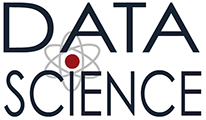Organized in collaboration with DISES
Contact person: Prof. Antonio D'Ambrosio: from DISES.
Data analytics underpinS several disruptive models. New types of data can strengthen strategic industrial, economic and societal plans. Massive data integration capabilities can break through organizational and technological silos, enabling new insights and models.
Growing access to open data collected in various areas (i.e., transport, education, environment, health, sport, culture, tourism, urban infrastructure, urban development, etc.) allows to implement more efficiently and effectively public economic and social policies, to design increasingly personalized services and to contribute to improving the quality of life and happiness.
Modern statistics and machine learning tools provide to evaluate the performance of regulated sectors (i.e., air transport, production and distribution of electricity and gas, water-integrated service, waste, health, etc.) and to predict its possible evolution such to identifying appropriate public support policies.
Hyperscale digital platforms can match buyers and sellers in real-time, transforming inefficient markets. Granular data can be used to personalize products and services. Marketing analytics integrating business, market and social media data can fuel discovery and innovation.
On all, data analytics can enable faster and more evidence-based decision-making.
This curriculum provides to empower the skills in the domain of Economics, Time Series Analysis, Computational Statistics and Social Network Analysis. Aim is to form a professional or researcher capable either to evaluate the actions of investments or marketing campaigns or to analyze the effects of economic and social policies, thus any other activity related to the sectors of economy, marketing, business and finance, public administration and social sciences.
| Course | CFU | Notes |
|---|---|---|
| Curricular course n. I | 12 | Specific to the selected curriculum |
| Curricular course n. II | 6 | Specific to the selected curriculum |
| 1-st Free Choice Course | 6 | Only constraint: the course must be coherent with the formative trajectory of the student (read below) |
| 2-nd Free Choice Course | 6 | Only constraint: the course must be coherent with the formative trajectory of the student (read below) |
| Internship-Stage or Project | 8 | Second semester |
| Other activities | 6 | Any Time |
| Thesis and Final Exam | 16 | Second Semester |
| Total CFU - First Year | 60 |
Recommended choices
| Activity | CFU | Course | Department | S.S.D. |
|---|---|---|---|---|
| Curricular course I | 12 | Computational Statistics and Generalized Linear Models | DISES | SECS-S/01 |
| Curricular course II | 6 | Introduction to Economy and Econometrics | DISES | SECS-S/03 |
| Free Course** | 6 | |||
| Free Course** | 6 | |||
| **Suggested Free Course (2 courses to be selected | 6 | Statistical Methods for Evaluation | DISES | SECS-S/05 |
| 6 | Mathematics for Economics and Finance | DISES | SECS-S/06 | |
| 6 | SW and methods for statistical analysis of economic data | DISES | SECS-S/01 | |
| 6 | Preference Learning | DISES | SECS-S/01 |








